Pegah Rahimian
Automated Explanation of Machine Learning Models of Footballing Actions in Words
Apr 01, 2025Abstract:While football analytics has changed the way teams and analysts assess performance, there remains a communication gap between machine learning practice and how coaching staff talk about football. Coaches and practitioners require actionable insights, which are not always provided by models. To bridge this gap, we show how to build wordalizations (a novel approach that leverages large language models) for shots in football. Specifically, we first build an expected goals model using logistic regression. We then use the co-efficients of this regression model to write sentences describing how factors (such as distance, angle and defensive pressure) contribute to the model's prediction. Finally, we use large language models to give an entertaining description of the shot. We describe our approach in a model card and provide an interactive open-source application describing shots in recent tournaments. We discuss how shot wordalisations might aid communication in coaching and football commentary, and give a further example of how the same approach can be applied to other actions in football.
Optical tracking in team sports
Apr 08, 2022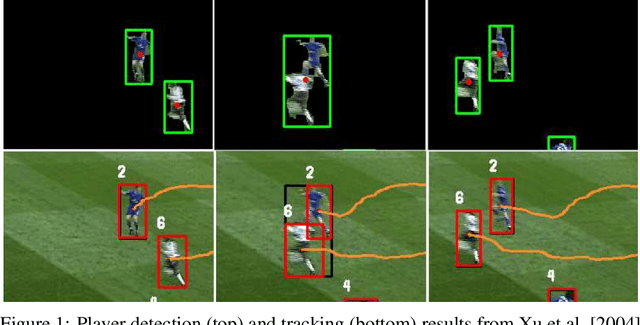
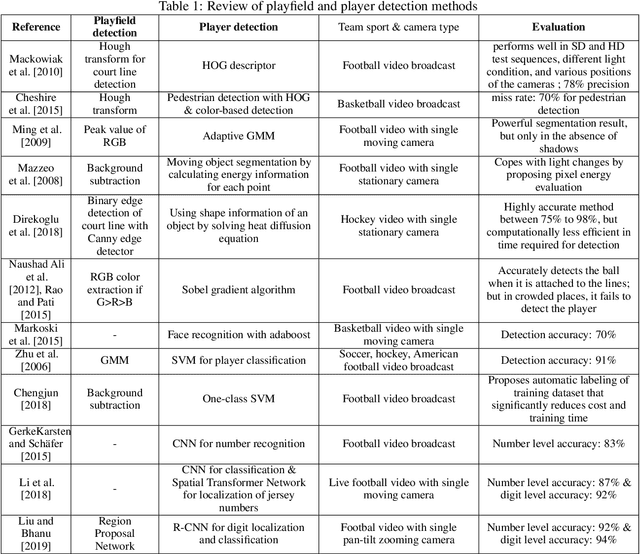

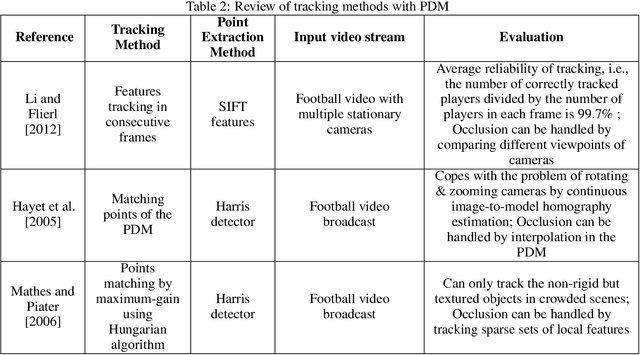
Abstract:Sports analysis has gained paramount importance for coaches, scouts, and fans. Recently, computer vision researchers have taken on the challenge of collecting the necessary data by proposing several methods of automatic player and ball tracking. Building on the gathered tracking data, data miners are able to perform quantitative analysis on the performance of players and teams. With this survey, our goal is to provide a basic understanding for quantitative data analysts about the process of creating the input data and the characteristics thereof. Thus, we summarize the recent methods of optical tracking by providing a comprehensive taxonomy of conventional and deep learning methods, separately. Moreover, we discuss the preprocessing steps of tracking, the most common challenges in this domain, and the application of tracking data to sports teams. Finally, we compare the methods by their cost and limitations, and conclude the work by highlighting potential future research directions.
Towards optimized actions in critical situations of soccer games with deep reinforcement learning
Sep 14, 2021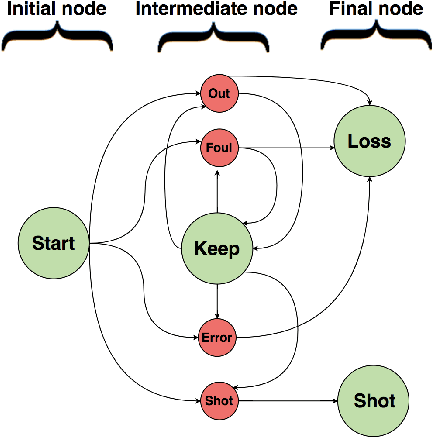
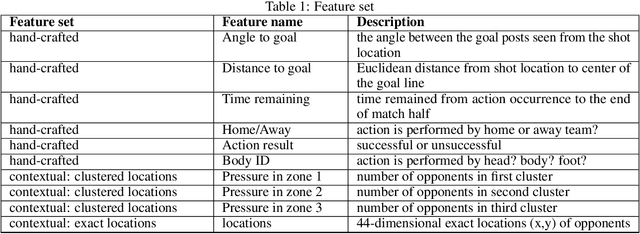
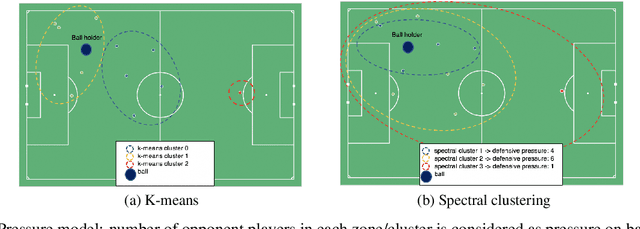

Abstract:Soccer is a sparse rewarding game: any smart or careless action in critical situations can change the result of the match. Therefore players, coaches, and scouts are all curious about the best action to be performed in critical situations, such as the times with a high probability of losing ball possession or scoring a goal. This work proposes a new state representation for the soccer game and a batch reinforcement learning to train a smart policy network. This network gets the contextual information of the situation and proposes the optimal action to maximize the expected goal for the team. We performed extensive numerical experiments on the soccer logs made by InStat for 104 European soccer matches. The results show that in all 104 games, the optimized policy obtains higher rewards than its counterpart in the behavior policy. Besides, our framework learns policies that are close to the expected behavior in the real world. For instance, in the optimized policy, we observe that some actions such as foul, or ball out can be sometimes more rewarding than a shot in specific situations.
 Add to Chrome
Add to Chrome Add to Firefox
Add to Firefox Add to Edge
Add to Edge